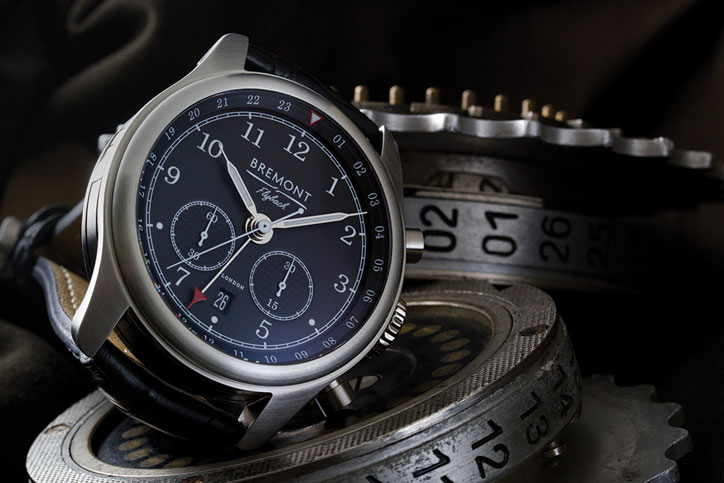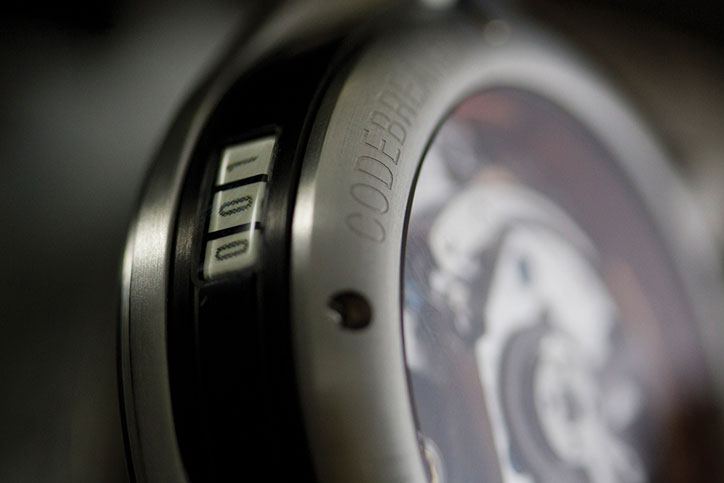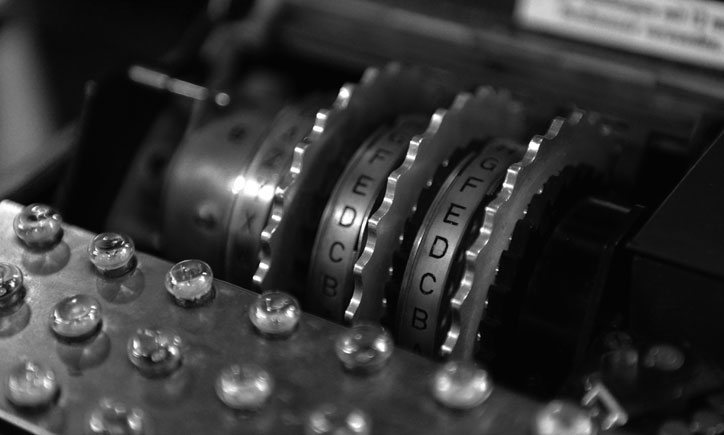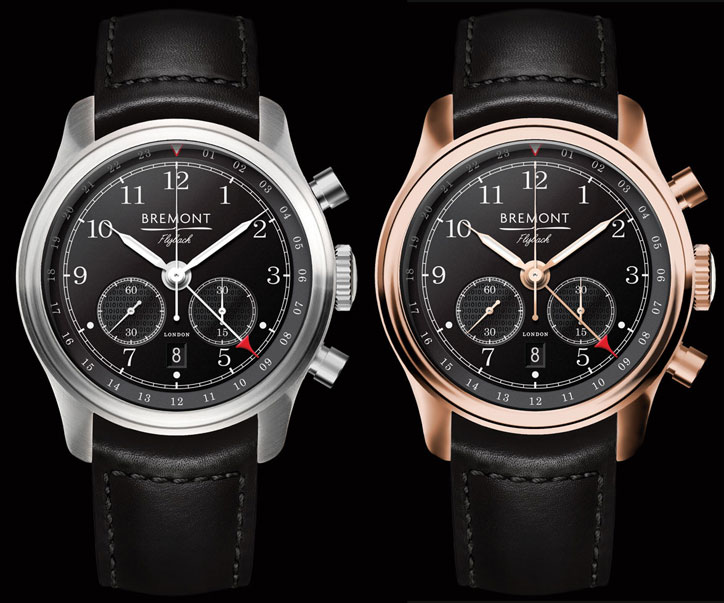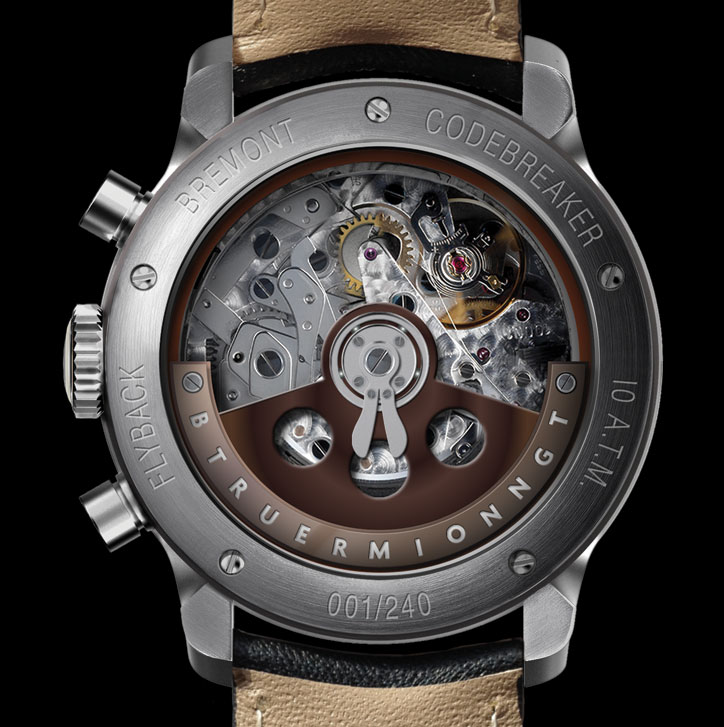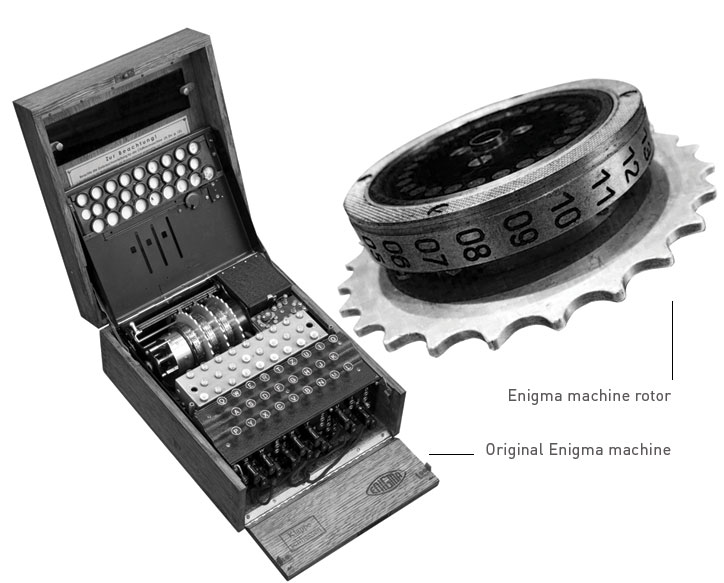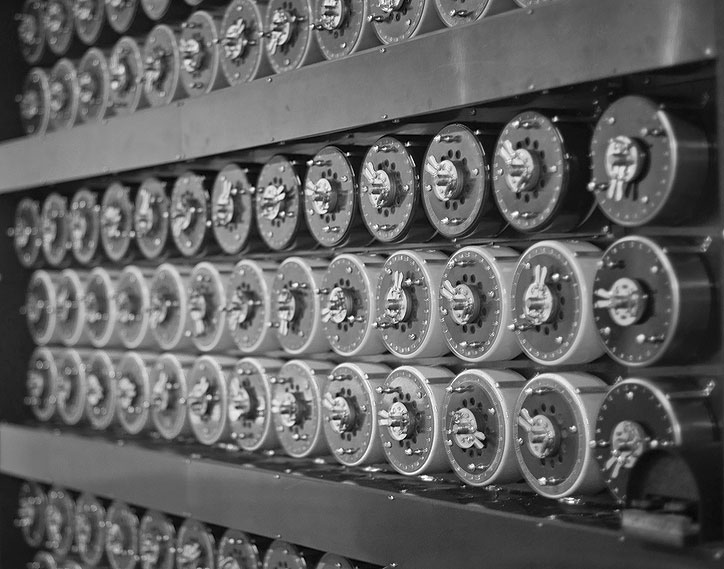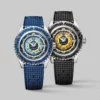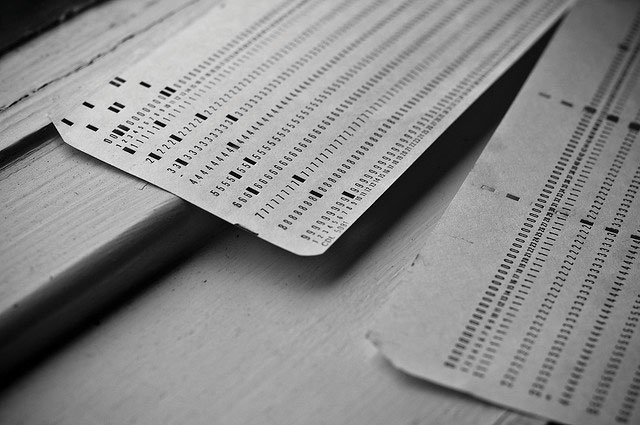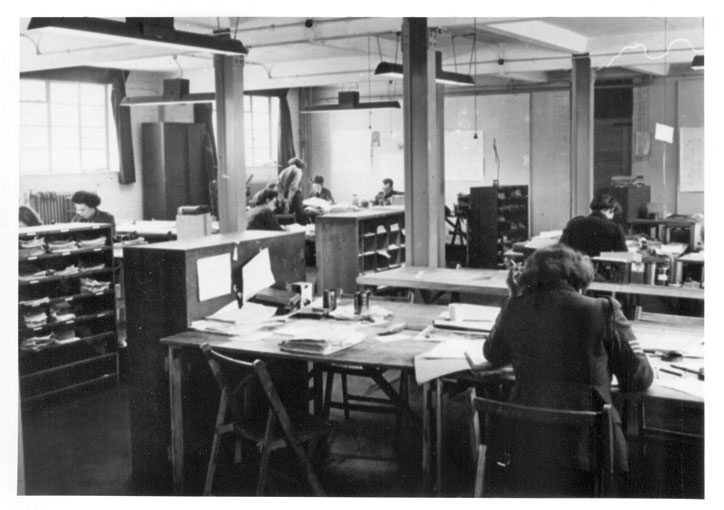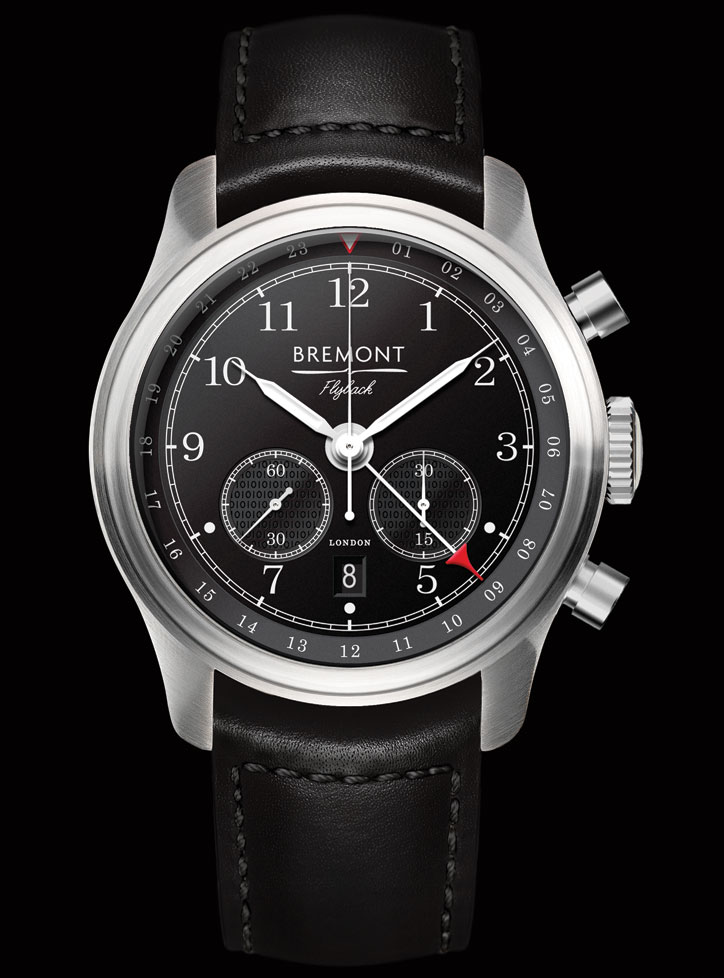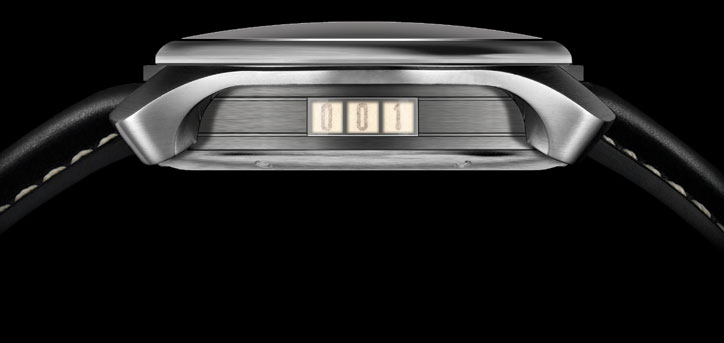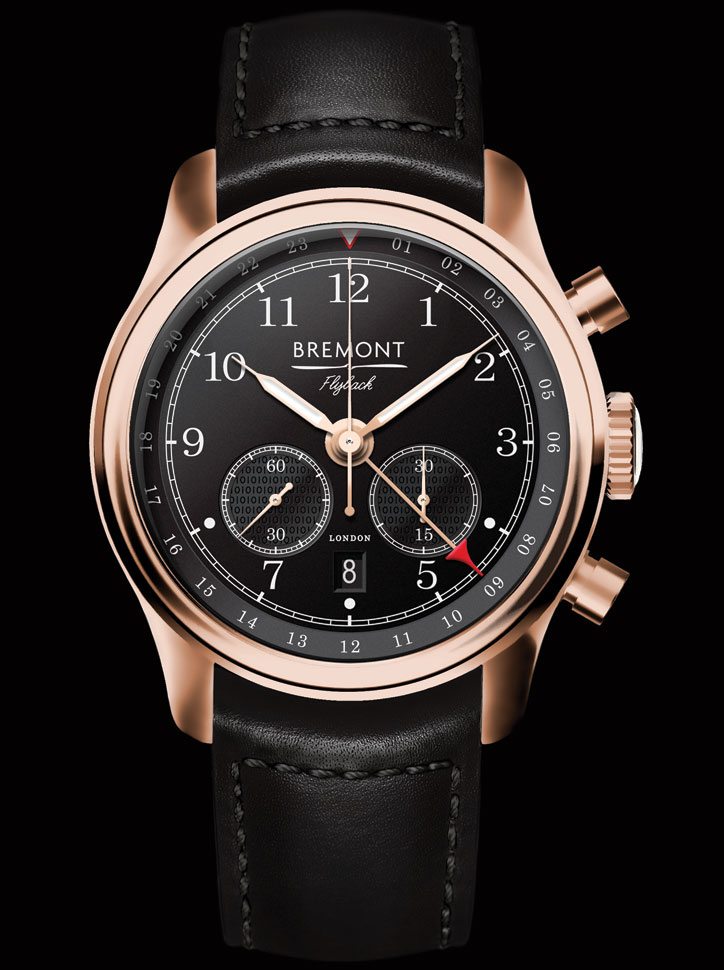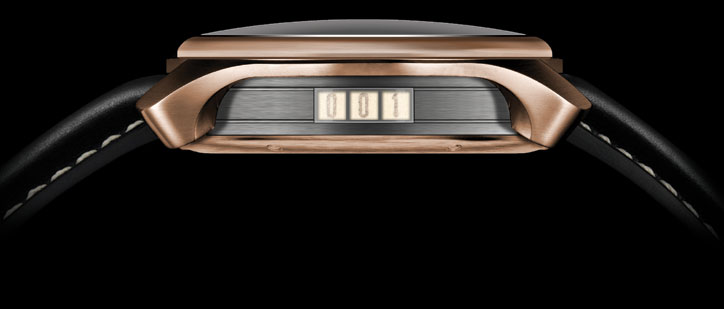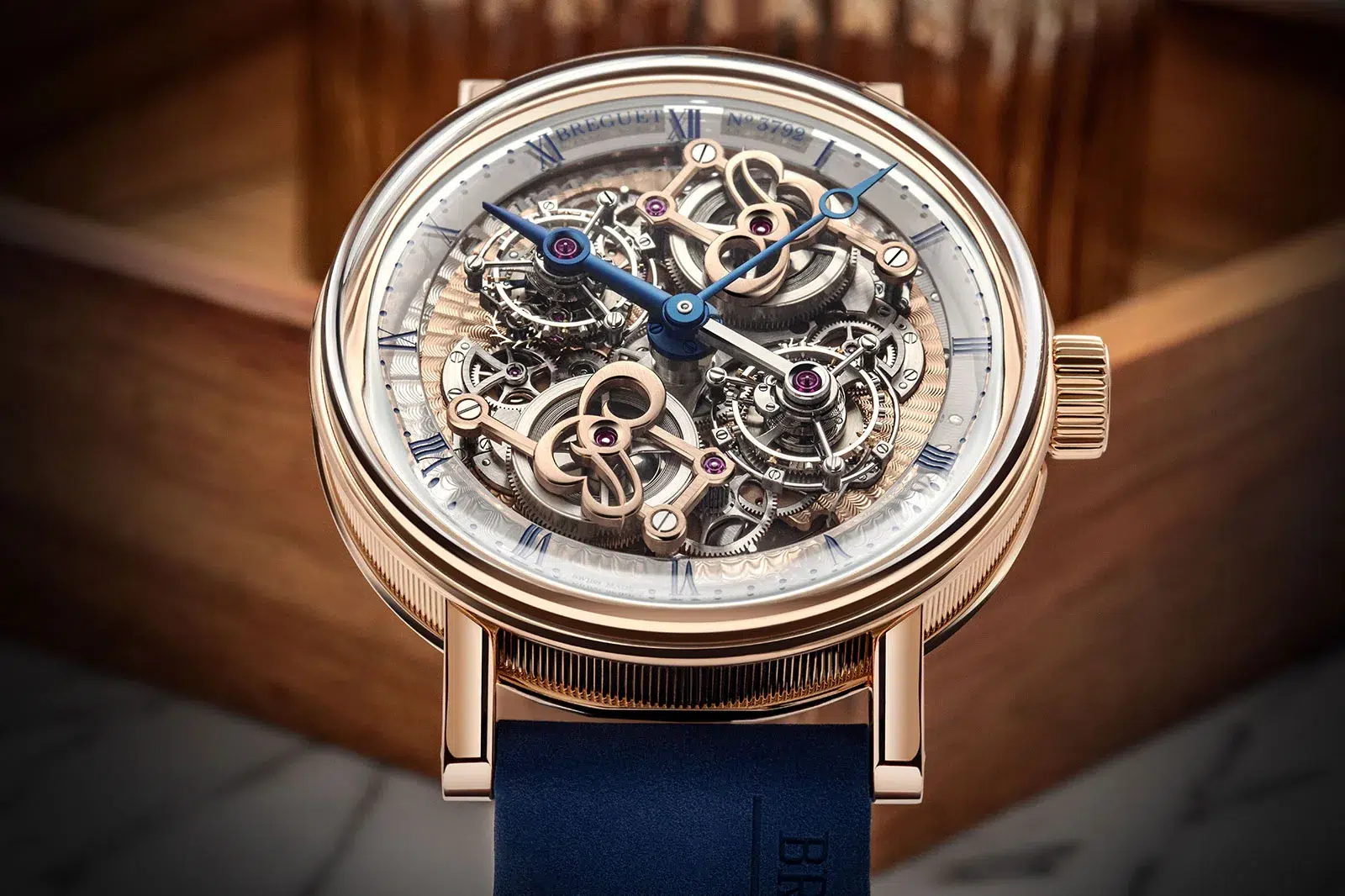CODEBREAKER
Section One
INTRODUCTION
“The intelligence… from you (Bletchley Park)… has been of priceless value. It has saved thousands
of British and American lives and, in no small way, contributed to the speed with which the enemy was routed and eventually forced to surrender… (It was a) very decisive contribution to the Allied war effort.”
— General Dwight D. Eisenhower
Bremont Watch Company is working with the Bletchley Park Trust to create the ‘Codebreaker’; a historically and mechanically important Limited Edition watch.
Bremont and the Bletchley Park Trust are pleased to announce that they will be working together on the release of the new Bremont Limited Edition watch that will incorporate historical artefacts from Bletchley Park. It will be called ‘Codebreaker’. The watch is unlike any other watch ever created and in addition a percentage of the proceeds will be used towards the ongoing restoration of Bletchley Park.
Bletchley Park played an extremely important role in British history. During WWII it was converted into a codebreaking factory and became the site of the United Kingdom’s main decryption establishment, the Government Code and Cipher School (GC&CS,) where ciphers and codes were decrypted, most famously the ciphers generated by the German Enigma and Lorenz machines.
By inventing and using ingenious machines and novel manual techniques to crack German ciphers, the 9,000 scientists, mathematicians and other crucial supporting staff are said to have helped shorten the war by at least two years and saved millions of lives.
Inspired by a classic 40’s officers watch, the ‘Codebreaker’ will be made with a beautiful and never seen before Flyback Chronograph GMT automatic movement and will incorporate some relevant historical artefacts from Bletchley Park; pine from the iconic Hut 6 (the centre of the operations to decrypt the German Wehrmacht and Luftwaffe Enigma ciphers) and paper from one of the few remaining punch cards (used to analyse the vast amount of coded data created from the daily Enigma communications). Part of the rotor of the watch will be made from the wheel of an original Enigma machine. 240 steel Codebreaker watches will be created and 50 rose gold watches.
Giles English; Co-founder Bremont
“Bletchley Park has such an amazing place in world history and has not only inspired us to create the beautiful ‘Codebreaker’ watch, but enabled Bremont to help raise funds and profile for the preservation of this important heritage site of which we are so proud.”
Iain Standen; CEO Bletchley Park Trust
“Bremont accomplished a great deal with the HMS Victory watch, both in terms of product and the benefits to the National Museum of the Royal Navy. Knowing this and seeing Bremont’s vision, we were keen to work with them. The mission of the Bletchley Park Trust is to preserve this important part of history for future generations.”
Nick English; Co-founder Bremont
“Mechanically we have made some considerable movement developments and incorporated materials that have never been built into a watch before. By moving the chronograph dials, building a Flyback Chronograph function and GMT second time-zone we have accomplished a wonderful mechanical timepiece. Both Giles and I were inspired by the ‘Bombe machine’ and the rotor balance is based on the Bombe’s drums. Each watch will have its limited edition number embedded into the case barrel with original punch cards. Hut 6 is part of the current restoration programme and fragments of its floorboards, on which codebreaking giants, such as Alan Turing and Gordon Welchman walked, have been incorporated into the watch crown.”
Bletchley Park
For decades, the WWII Codebreaking centre at Bletchley Park was one of the UK’s most closely guarded secrets. Today, it’s a poignant place to visit and reflect on the achievements of those who worked there. Their outstanding feats of intellect, coupled with breakthrough engineering and dogged determination, were crucial to the Allied victory and in parallel, helped kick start the computing age.
Thousands of people worked at Bletchley Park during WWII to decipher messages transmitted by the German forces. The standard 3 rotor Enigma was capable of being set to approximately 158 trillion possible settings. The reading of encrypted messages on an industrial scale, the use of the intelligence gained and the subsequent related actions of the Allies are said to have shortened WWII by two years, saving countless lives. The critical importance of Bletchley Park in world history cannot be denied.
Bletchley Park is also the birthplace of the computer. The world’s first programmable electronic computer, Colossus, was conceived and installed at Bletchley Park during WWII to speed the reading of encrypted German messages sent by Hitler and the high command. Bletchley Park is unique. It combines a key role in modern history with being the birthplace of the digital age.
About Bremont
Bremont is an award-winning British company producing beautifully engineered chronometers at our Headquarters in Henley-on-Thames, England.
Time began for Bremont when we embarked on a journey to make beautifully crafted pilot’s watches of exceptional quality. Flying historic aircraft has been in our blood from an early age, as has our love for watches, history, and all things mechanical. The timepieces had to be tested beyond any normal call of duty (and not just in the workshop), and of course be immensely precise and durable.
Bletchley Park has such an amazing place in world history and has not only inspired us to create the beautiful ‘Codebreaker’ watch, but enabled Bremont to help raise funds and profi le for the preservation of this important heritage site of which we are so proud.
Enigma machine rotors
Section Two
THE WATCH
« Probably the most significant single war effort the British made and it (Bletchley Park) was conclusively and convincingly triumphant. »
— Stephen Fry, British Actor and Author
Bremont will make 240 stainless steel and 50 rose gold versions of the Codebreaker and each will feature original Bletchley Park artefacts used in the effort to win the Second World War.
Breaking Enigma
The Enigma used rotors to scramble messages into unintelligible cyphertext. The German military adapted an early commercial version, marketed to the banking industry, and believed it to be impenetrable. Each one of the machine’s billions of possible combinations generated completely different cyphertext. Finding those settings, which were reset at midnight every day, was the challenge faced by the Codebreakers.
Before WWII, work was being undertaken in a number of countries to break Enigma. In July 1939, aware that Poland would soon be invaded, Polish mathematicians who had worked on Enigma shared their work with the British and the French. By this time the Germans were changing the Enigma settings daily and the fi rst British wartime breaks into the daily-changing Enigma code took place at Bletchley Park in January 1940.
The rotor of the Bremont Codebreaker will contain original material from the enigma machine rotor (below).
Bombe Machine
The Bombe machine was developed to speed up the breaking of Enigma, so that messages were still operationally relevant. The Bombe helped to deduce the day’s Enigma settings, of both the rotors and the plug board, by eliminating the many incorrect possibilities.
The Codebreakers created a menu for the wiring at the back of the Bombe based on a hypothesis, known as a ‘crib’, of part of the original message. Cribs were often derived from regular appearances in decyphered messages of stock phrases, such as ‘message number’ or ‘nothing signifi cant to report’.
The machine was developed by Alan Turing and the case back of the Bremont Codebreaker has been designed to replicate the drum of the Bombe machine.
Row of drums from the Bombe machine
Punch Cards
When GCHQ left Bletchley for Eastcote in 1946 the British Tabulating Machine Company (BTM) cards were boxed up and were later moved to Cheltenham when GCHQ moved again in 1952. The cards were discovered when GCHQ was preparing to release records to The National Archives, GCHQ allowed them to go to the Bletchley Park Trust along with other records. With over 2 million created every week there is only half a box remaining, 5 cards are being incorporated into the barrel of the Codebreaker watch to display the watches serial number.
Uses of the punch cards:
The BTM system was essentially an early form of computer processing. The system managed the BP Punch-Card Intelligence Index and was thus key to the success of the Codebreaking work, specifi cally recording Enigma decryption information.
One of the challenges facing BP staff was to break the daily Enigma codes before the rotors were re-set (these were done so every 24 hours). The BTM machines allowed the analysis of decryption information: Punch Cards based on the coded messages would either block or allow electrical currents to pass through them enabling the operators to limit the number of possible Enigma wheel-settings and therefore the number of possible solutions to each days Enigma code.
Hut 6
Hut 6 was built in January 1940 for the decryption of Enigma messages from the German Army and Air Force, with help from the punch cards and then the Bombe machines. The cards were used to help deduce the Enigma keys and wheel orders.
Once the day’s Enigma settings had been partially established with help from the Bombe, the information was sent back to Hut 6 where it was used to complete the discovery of the Enigma settings. Decrypted messages were then passed to Hut 3 for translation and analysis.
Original pieces of Hut 6 pine will be incorporated into the crown of the Bremont Codebreaker.
Bletchley Park staff working in Hut 6
Section Three
TECHNICAL FEATURES
« The work here at Bletchley Park… was utterly fundamental to the survival of Britain and to the triumph of the West. I’m not actually sure that I can think of very many other places where I could say something as unequivocal as that. This is sacred ground. If this isn’t worth preserving, what is? »
— Professor Richard Holmes, Military Historian
- MADE IN ENGLAND» Stainless Steel and Rose Gold.
- Movement» BE-83AR Flyback chronograph. Diameter 13 1/4″, height 7.90mm, 39 Jewels, three-legged Glucydur balance with Nivarox 1 mainspring 28,800 bph. Incabloc shock protection and 46 hour power reserve. Perlage and blued screwed decoration with hand crafted stainless steel and Bombe rotor.
- Functions» Sweep hours, minutes, sweep Flyback chronograph seconds, 30-minute chronograph counter and 60 second hand counter, GMT second time zone, date.
- Case» hardened stainless steel or 18 carat rose gold Bremont Trip Tick case construction with treated inner barrel with punch card limited edition number (material from Bletchley park). Case diameter 43mm, lug width 22mm and case thickness 15mm.
- Crown» Crown engraved with pinewood from hut 6, Bletchley Park.
- Case Back» hardened stainless steel or 18 carat rose gold case back with integrated hand etched sapphire crystal.
Automatic rotor inspired by the Bombe machine incorporating parts of an original German Enigma rotor. - Dial» Etched metal dial and treated brass hands, London on the dial.
- Crystal» Domed anti-refl ective, scratch resistant sapphire crystal.
- Water resistance» Water resistant to 10ATM, 100 metres.
- Strap» Classic style leather strap.

